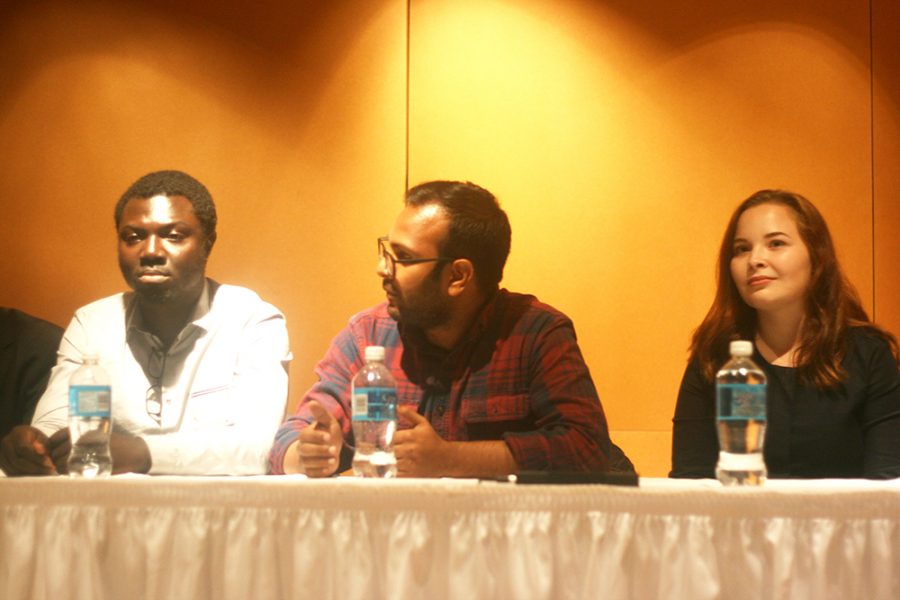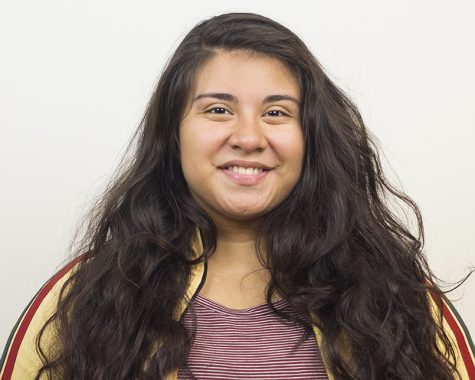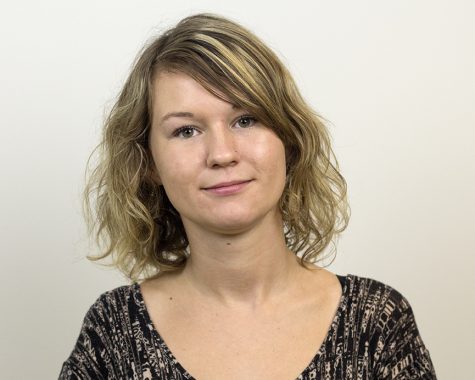International forum draws large audience
Owura Kuffuor, a political science grad student from Ghanna, Tajdar Ahmed a sustainable energy grad student from India, and Valida Azamatova, a Political Science grad student from Uzbekistan discuss the importance of voting and freedom of choice.
November 2, 2016
About 100 people attended an open forum Wednesday night to hear stories and experiences from a handful of international students and faculty at Eastern.
“Global Ties, Local Lives” was a forum featuring graduate students Valida Azamatova and Owura Kuffuor, who are both political science majors and Tajdar Ahmed, a sustainable energy major.
“I feel that I can tell my story better than anyone else,” Kuffuor said. “If I can make just a little difference then it is worth it.”
Azamatova is from Uzbekistan, Kuffuor is from Ghana and Ahmed is from India. All three are here at Eastern on a F-1 visa. F visas allow foreigners to pursue education in the U.S., but an F-1 visa requires international students to maintain a full course of study in their chosen field.
“I feel like the people who came gained insights on what it’s like to be an international student,” Azamatova said. “I believe immigration has been a hot topic (during this election), and people came here not just to learn from us and our experiences, but to listen to us.”
Also featured were faculty members English professor C.C. Wharram, who is also the director of the Center for the Humanities; Teresa Maria Linda Scholz, a communication studies professor and vice chair of Making Excellence Inclusive and Catherine Polydore, psychology professor and MEI chair.
Wharram is from Canada and recently received his green card, and Scholz is an American born citizen who is the first generation American in her family. Scholz’s family is originally from Guatemala. Polydore is from the Caribbean Island of Dominica and has recently become naturalized citizen after living in the United States for over 20 years.
Before the panel began, Wharram explained the reasons for holding the forum and why it was an important subject given the circumstances of the upcoming election.
“No matter who wins (this election)—we will be facing the apocalypse,” Wharram said.
Wharram explained that as a citizen with only a green card, he is not allowed to vote. However, Polydore, who is now a citizen, said she was excited to participate in the election, as she has only ever voted once before back in Dominica.
The students talked in depth about their time in the U.S. and what it is like to experience the cultural difference between America and their home country.
Kuffuor talked about the different social cues in Ghana compared to America. For example, he said he had to learn the differences when looking at people.
“You have to assimilate,” Kuffuor said. “If you look a person in the eye in Ghana it’s disrespectful, if you don’t (here) they think you’re lying.”
Azamatova, who finished her undergraduate degree in South Dakota, said that she was amazed at “how big everything is.”
“What shocked me was how people valued trucks and cowboys and how big your belt buckle was,” Azamatova said.
Ahmed talked about the different holidays celebrated in America.
This Halloween was Ahmed’s first Halloween in the states, where he had the opportunity to carve his first pumpkin.
Ahmed said that his experience at Eastern and in Charleston in general has been positive and welcoming. Even his relationship with his professors has been positive, which is a different experience than what he is used to back in India.
Eastern President David Glassman, who was also in attendance Wednesday night, said it was important for him to come and support the international students and faculty.
“I think it’s wonderful. The students were open and excited about not just about their home country, but about their experiences and challenges they face,” Glassman said.
Angelica Cataldo can be reached at 581-2812 or [email protected].





















































